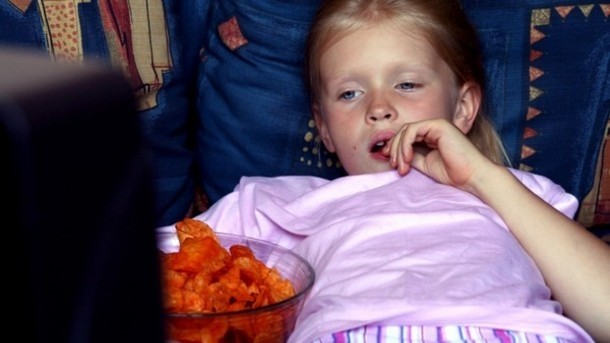Marketing to children, or the family? EU and UK data suggests clashes in TV advertising

The conflicting data suggests a trend for brands and advertisers to move away from direct advertising to children during children specific programming, but towards advertising on prime-time family friendly television.
While the European data, independently put together by Accenture Media Management, shows that that the world’s biggest food brands have significantly changed the way they advertise products to children on TV within the European Union since 2005, the UK-based analysis of over 750 adverts found almost one in four TV ads shown between eight and nine pm were for food (22%), with viewers seeing as many as six junk food adverts per hour.
Lower ads on children's TV
According to the Accenture data, which assessed children's TV viewing habits in EU countries as part of the EU Pledge 2013 monitoring report, shows that many brands have either voluntarily pulled food advertisements or are only advertising products that meet strict nutrition criteria during children’s programming.
This means that children today are being exposed to considerably less publicity for all food products across all TV programming, said the team - who said that overall compliance with the EU Pledge by those 20 global manufacturers signed up to it was at 98.1%.
“Independent data show how European children are seeing less and less food ads on TV, especially for products not fulfilling strict nutrition criteria," said Stephan Loerke, managing director of the World Federation of Advertisers (WFA). "This is important given children still spend far more time in front of TV than any other media."
However, the WFA-backed data has come in for criticism from experts, who suggested that many food brands are using 'loopholes' to get around promises, pledges, and regulation to reduce food marketing to children.
"What the Accenture Media Management data confirm is that children are still exposed to nearly 70% of the 2005 level of advertising for products the EU pledge is meant to curtail," commented Neville Rigby of the International Obesity Forum.
Adding to Rigby's comments, Professor Amandine Garde from the University of Liverpool, suggested that while the new EU data may show good compliance to pledges, "the question rarely arises in these reports of the effectiveness of the pledges: the only monitoring is the extent to which industry complies with the commitments."
"There is no evaluation of how sound the commitments themselves are and how likely they are to promote healthier eating habits," said Garde.
Prime-time data
The UK data, headed by the Children’s Food Campaign and the British Heart Foundation (BHF), commissioned their research to spur the UK Government and Ofcom to take action to protect children.
The data shows that adverts shown during prime time seem to be designed for a young audience, with nearly a third (31%) of food adverts shown between eight and nine pm using themes of ‘fun’ rather than more adult concerns of price or convenience.
Furthermore, over half of these clips (53%) used children or child-aged characters to promote their food, the report found.
“Parents don’t expect their children to be bombarded with ads for unhealthy food during primetime TV, but that’s exactly what happens," said Simon Gillespie, chief executive of the BHF.
Advertising regulation
Garde reiterated that World Health Organisation (WHO) recommendations on the marketing of food and non-alcoholic beverages to children call on governments to take the lead on food marketing regulation, "insisting on the importance for them to act in the public interest and avoid conflicts of interest."
"Industry pledges are still full of gaps," she said. "Children’s exposure may have reduced during children’s television programmes, but the commitment to reduce advertising on TV programmes directed at children has a twofold effect: 1) to shift investment from children to non-children’s television programmes; and 2) to shift investment to other media which are not subjected to any form of voluntary commitments."
Rigby added that Europe's children 'deserve better', suggesting that it is clear that the companies covered in the EU pledge survey, which account for 80% of adverts targeting children, "are not honouring the spirit of their pledges or measuring up to their responsibilities."
"After six years of not trying hard enough, the voluntary approach has clearly failed," he said.
"It is time for the EU to take the issue of preventing childhood obesity seriously and introduce the regulatory measures needed to curb the unethical peddling of junk food and sugar drinks to children across all member states."

















